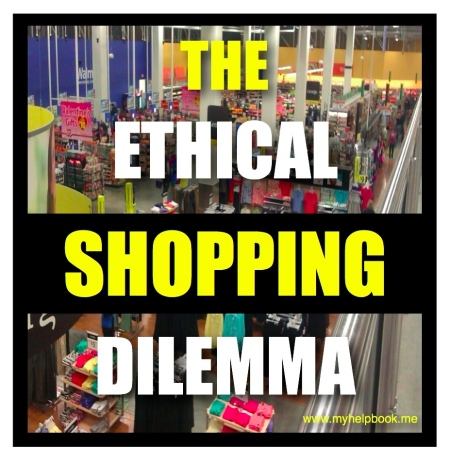|
The trend of ethical consumption and ethical shopping is gaining momentum partly due to recent tragedies exposing inhuman working conditions for those who labour and sometimes give their lives to make cheap clothes even cheaper. See CBC timeline.
There are ethical shopping workshops, people who promote the idea of buying no gifts at Christmas, the voluntary simplicity movement, and anti-consumption ethics and campaigns (such as Buy Nothing Day) promoted by Adbusters. Is it helpful to buy local, buy fair trade, and shop ethically? Yes, but it is a drop in the bucket when we look at the big picture. Here's the dilemma: less consumption is very good for the environment, but when people don't buy stuff, other people don't have jobs. People fear losing jobs and incomes which is why the green movement has stalled for decades and almost all politicians promise jobs and growth. However, there is a way out of this dilemma and it is an idea increasing numbers of people around the world are talking about -- direct cash transfers to transition to an economy that takes into account environmental limits as well "technological unemployment" (loss of jobs from increased productivity). With the timely implementation of universal incomes, we really could have an ethical consumption economy – and we could finally end the harms caused by an economy based on endless consumption. In addition, local and micro-enterprises would flourish. Learn more about the movement for universal incomes*:
Learn more about technological unemployment:
*Note: when you search online for "basic income" or "guaranteed livable income", AVOID information from a multi-level marketing (MLM) scam - "equal money" that has co-opted terms "basic income" and "living income". Read more about this here and here.
1 Comment
|
AuthorMy Opportunity & Help Book BC Categories
All
Archives
December 2020
|
Proudly powered by Weebly

 RSS Feed
RSS Feed